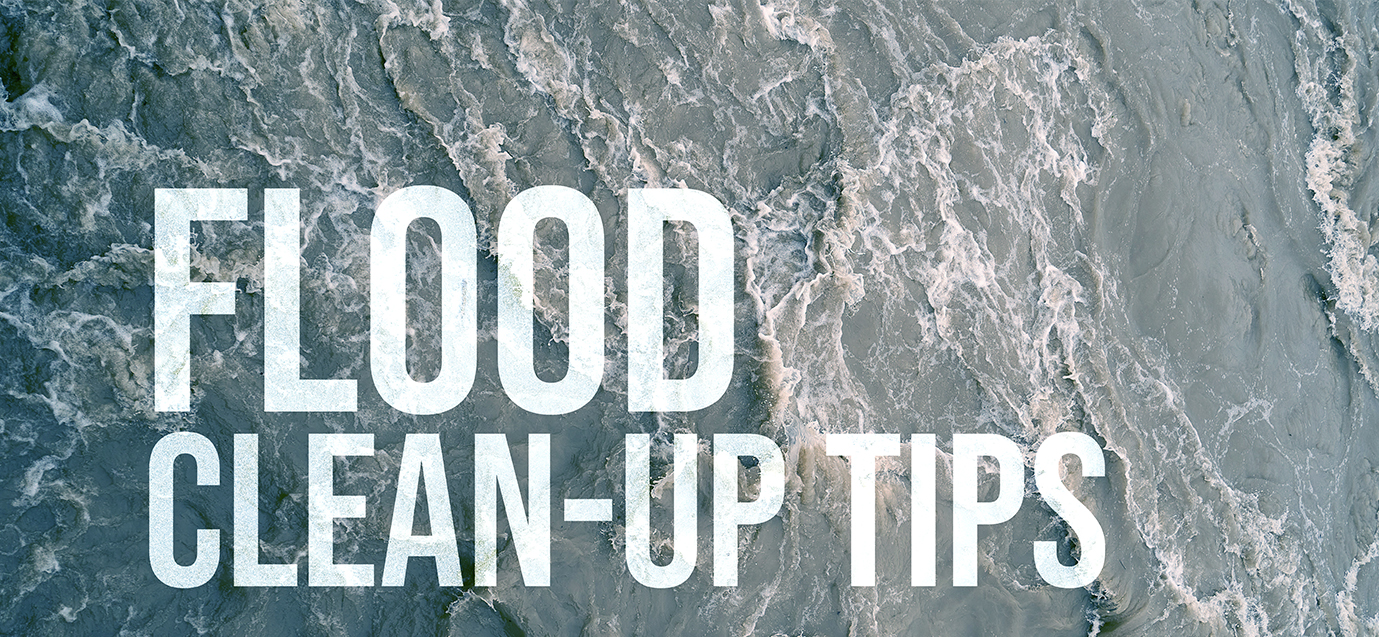You must have cookies enabled for the site to work properly.

Flood Clean-Up Tips
Wednesday March 9, 2022
A flood can be caused by heavy rainfall, rapid snowmelt or a storm surge from a tropical cyclone or tsunami. Flooding is the most common natural disaster in the United States and many regions are affected by it each year.
Preparation
If you live in an area that is prone to flooding, you should prepare before a flood happens. Have a plan in place for each possible situation including evacuation, shelter in place, and seek higher ground.
- Know Your Risk: Find updated flood maps for your area online and sign up for Emergency Alerts from the NOAA and EAS (Emergency Alert System).
- Consider Flood Insurance: Flood Insurance can be the last line of defense in protecting your home from flood. Check your home and auto insurance to see if you’re protected from flood damage.
- Plan: Have a plan in place for all the people/animals in your home. Keep necessary medical information/supplies on hand in case you can’t leave your home.

During a Flood
If you don’t have a lot of time to prepare you need to know exactly what you need and where it is.
- Evacuate immediately if told to evacuate. Don’t drive through high water or around barricades.
- Listen to Emergency Alerts and follow all advice from emergency personnel.
- Don’t walk or swim through flood water.
- Avoid bridges, fast moving water can wash away a bridge in an instant.
- If you’re in a building, move to the highest level. Don’t shelter in an enclosed attic because you can be trapped by rising water.
After a Flood
- Listen to emergency personnel and only return to your home if the area is deemed safe.
- Wear heavy work gloves, protective clothing and boots during clean-up. Use a mask if cleaning inside a flooded structure to protect from mold and other debris.
- Be aware of snakes and other animals that may have been seeking shelter in your house/building.
- Don’t touch electrical equipment if it is wet or if you are standing in water. Be sure to turn off electricity to prevent shock.
- Avoid wading in floodwater which could be contaminated and contain dangerous debris.
- Only use generators outdoors and away from windows.
